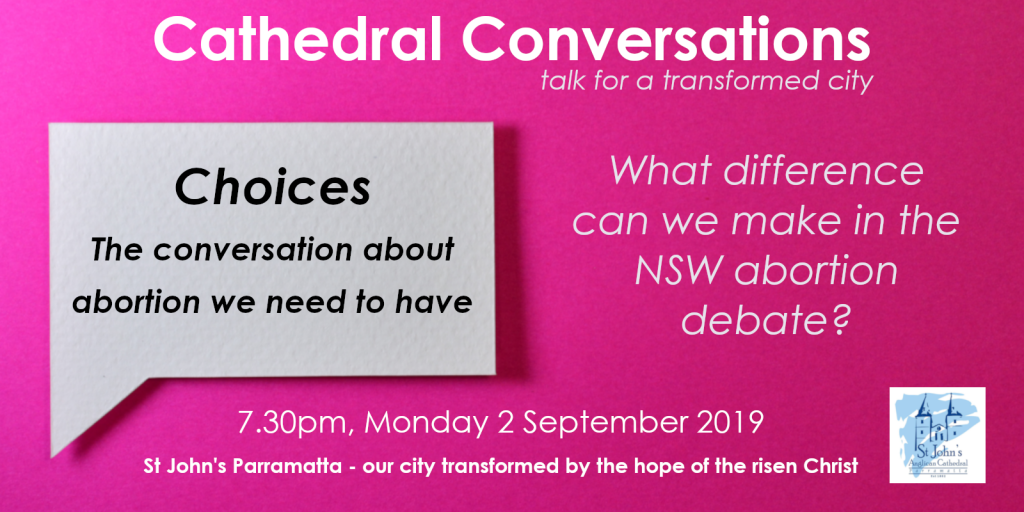Like many, my heart has become heavy over the past several weeks as legislation which sought to decriminalise foeticide was pushed through the NSW Legislative Assembly (the lower house) and was successfully passed 59-31. While it must pass the Legislative Council (upper house) in order to be enacted into law, it is immensely likely that pass it will.
The sadness that I, and many others, feel however isn’t solely restricted to the Reproductive Healthcare Reform bill in of itself, but what it is representative of. Namely, the moral—or rather immoral—state of current society. We’ve not only moved away from the Judeo-Christian values that have undergirded much of the freedoms that society has come to enjoy, but en mass such values have been either jettisoned or misappropriated.
In some ways, it isn’t surprising. We’re living in a post-Christian society, which is taking us back steadily—but increasingly—to a pre-Constantine period in terms of communal and societal ethics. God has been misplaced and, instead, the idol factories are in full-swing, churning out all sorts of manufactured goods that will lead to envy, discontent, despair and, ultimately, demise.
Yet in this cleverly concealed path leading to destruction, wickedness is championed as being right and just, whereas divine goodness is seen as both constricting and archaic. Such being evidenced through the destruction of the unborn on the surgical tables of Moloch. A national—if not a global—moral travesty, yet one which is so clearly illuminative of man’s postlapsarian state. Even one familiar with such truths can only be rendered speechless, when attempts to add an amendment to save babies born alive and provide the same level of neonatal care which would be given to any other child born at the same stage of pregnancy, is mercilessly defeated (57-31).
However, this is but an example of the reality we face. In the name of self-determinism, that which is not deemed convenient for self is discarded. Convenience and instant gratification is king, if not, ultimately, god. By today’s standards, an unborn baby has no worth, no inherent value, no identity and no rights—unless the parents graciously condescend and grant them. This is the only difference between a wanted baby and an unwanted foetus. Both are in the womb, both could be as equally developed within the womb. Yet both will not necessarily be equal. Such inequality could be because of the baby’s sex, health, or just a parent’s whim. The semblance to slavery is uncanny, whereas people are deemed chattel—only gaining worth if such is given by the owner, and only if it’s convenient.
Improving Social Engagement
While this bill wasn’t directly attacking Christians per se—being against a moral law (Mark 12:31 c.f. Exodus 20:13) which has both universal binding and application—such an event needs to be taken in light of the greater societal discourse. Western society, on both ends of the political spectrum to varying degrees, is aggressively seeking to erode, if not remove, both the messaging and outworking of Christianity in the marketplace of ideas.
Rather than retreat, Christians—all those who both profess Christ and recognise that their lives are for Him (2 Corinthians 5:15)—need to work out how to traverse this discourse well. This is something that Christians, especially in Australia, really need to improve in—establishing and operating within an overarching and well-grounded understanding of social engagement. Christians are called to live as citizens within the world but as citizens not of the world (1 John 2:15 c.f. 2 Corinthians 5:18-20; 1 Peter 2:12).
Such an approach is not done through blunting the message of the Cross (1 Timothy 1:15 c.f. Acts 17:30), but as Christians are called to speak prophetically, communicating God’s message in its entirety, to the world; A correct understanding of social engagement requires us to speak, and speak we must. Recognising we now live in a post-Christian world, we must prayerfully learn how to regain our voice and the confidence in expressing it. That does not mean we’ll be given a public podium in which to do so, but it does mean we must not refrain from being involved and speaking, even at the annoyance of those in power.
This is what has been overwhelmingly absent over the past few weeks and years. Not that there haven’t been certain individuals rising to bat, but that churches and Christian, namely protestant, engagement has been collectively lacking. Things like religious freedom, the decriminalisation of the murder of the unborn, the state of refugee detention facilities, and so forth should move us to consistently, and collectively, provide a voice in the public process. However, speaking is only a part—It should move us to individual and collective prayer, as we pray against that which seeks to contradict what God has instituted as humanly good.
Yet, how many Christians were engaged in the recent event? Plenty—through a myriad of ways. But how many were likely not? Many more. How many churches gathered especially to pray over the recent event and the government? Some. How many did not? Undoubtedly, many more. This is despite the reality that praying for our government is stated as a commendable thing (1 Timothy 2:1-3) that all of us should have been driven to, understanding that this is an act which evidently undermines the very moral fabric of this nation. If it did not drive us to both our knees and to engagement, we must ask ourselves: why did it not?
This is why events like that of these past weeks are a double-edged sword. Acts of wickedness permit us to scrutinise our own reactions to them. We are able to ensure our heart is not ensnared to either sin or spiritual apathy. We are able to assess that we are not simply sitting idly by in this world, looking forward to what awaits us in Eternity but forgetting where God has placed us now.
Let this be an exhortation that if you are reading this and are a professed Christian, then engage in the world where God has placed you. Hold to His Word as the guiding foundation and driver of your life, failing not to speak on the areas where He has already spoken. Shying not away from the totality of His Word, and realising that all of it, each and every word, is for the prosperity of humanity. Proclaim Christ, proclaim the forgiveness of sins, and always ensure to speak, ensure to pray, and ensure to encourage your brethren to go and do likewise.
First, they came for the public figures, those who were vocal with their faith, and I did not speak out—
Because I was not a public figure.
Then they came for the voiceless, those who were unborn, and I did not speak out—
Because I had already been born.
Then they came for the religious, those were particularly devout and clung to their beliefs, and I did not speak out—
Because I was not that religious.
Then they came for me—for they had already taken everyone else.























You must be logged in to post a comment.